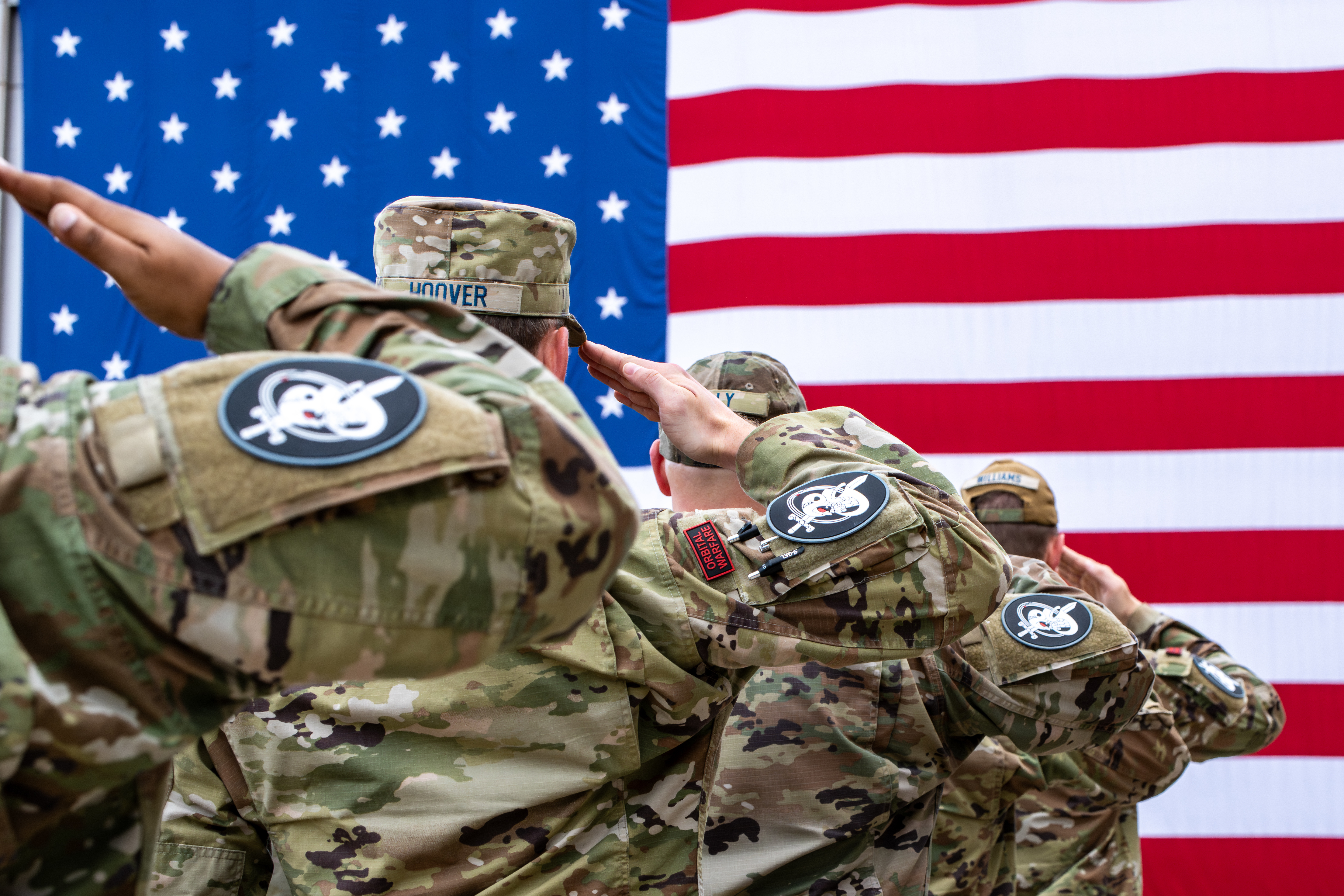
3 minute read
Empowering Guardians
As a new, leaner service branch, the United States Space Force community has a unique opportunity to shape the Guardian experience. In not being tied to the “that’s the way we’ve always done it” mindset, senior leaders encourage innovation to find new ways to address old issues such as recruitment, engagement, and retention.
Senior leaders understand that the Space Force IS different,” said Jennifer Saltzman, spouse of Gen. B. Chance Saltzman, Chief of Space Operations. “We are smaller, operationally focused, and face challenges in a newly contested domain. It is important that we explore new, tailor-made approaches to get our jobs done."
We are all in this together…there are roles for all of us to play to find the best answers for our families.
"Our Guardians are diverse, bringing unique skills and perspectives to the Space Force,” said Col. Jason Schramm, Deputy Commander of U.S. Space Forces Indo-Pacific, who previously served as the commander of Space Delta 1. “Our age is several years older than the other services, our percentage of females is higher, and the number coming in with bachelor’s degrees is higher. All those things mean we must train, motivate, and retain Guardians differently.”
When the service stood up, service members from all military branches were accepted. With Guardians being commissioned directly into the Space Force, we now have control over recruiting and training these newest Guardians.
“Our Guardians come from all walks of life, with rich and diverse experiences,” said Debbie Schiess, spouse of Lt. Gen. Douglas A. Schiess, Commander of U.S. Space Forces—Space. “We need to use those different experiences to build a strong foundation for what we want the Guardian experience to be.”
Everyone has an opportunity and a voice to do something. With a smaller force, we can create connections in ways that the other services cannot,” said Schiess.
Shaping the Guardian experience will not come from the top, but leadership must encourage and empower Guardians to build culture organically.
“With the other services, cultures are forged during wars,” said Schramm. “People may scoff when we talk about a warfighter mindset, but we can’t afford to lose the first war in space.”
The question becomes, “How do you build something that’s never been built before?” One aspect is to use our agility to our advantage, taking the best practices from military history and adapting them to fit the needs of Guardian families. We can engage community partners to develop creative solutions by borrowing the most successful methods from the business world.
As we explore how to best engage and support Guardian families throughout a Guardian’s career, the adage “recruit the soldier, retain the family” should serve as a touchstone. “The decision to stay or leave the military gets made around the kitchen table,” said Sue Hoppin, founder of the National Military Spouse Network.
What are families saying about the Guardian experience around those tables? In the age of digital communication, feedback comes swiftly, for better or worse. Are we listening? Are we asking the right questions?
Our all-volunteer force depends on it.
This article was written by Nicole Murray, the spouse of an Active Duty U.S. Space Force Guardian deeply committed to serving military families. You can read her full bio and the complete edition of United Forces & Families ENGAGE: Empowering Guardians and Their Families here.








